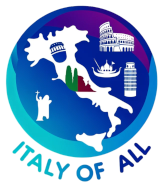The province of Avellino, nestled in the Campania region of southern Italy, is characterized by its lush landscapes, rich history, and vibrant culture. It is located east of Naples and is predominantly mountainous, interspersed with fertile valleys that contribute to its strong agricultural tradition.
Geographically, Avellino is set within the Apennines, offering a range of elevations that provide stunning vistas and a cooler climate than the coastal areas. This terrain is ideal for agriculture, particularly vineyards and olive groves that thrive in the volcanic soil. The area is also known for its natural springs and dense woodlands, making it popular for hiking and outdoor activities.
Historically, Avellino has roots that go back to the ancient Samnites, and later it was influenced by Roman and Lombard dominions. The area is dotted with medieval castles, ancient churches, and archaeological sites that reflect its layered history. Notable historical sites include the Lombard Castle in Avellino and the ancient cathedral of Montevergine, which attracts pilgrims and tourists alike.
Culturally, Avellino has a rich tapestry of traditions and is known for its numerous local festivals that celebrate its agricultural products and historical narratives. These include the “Festa dei Banderesi” in Bagnoli Irpino, which revolves around medieval reenactments and local folklore, and the “Sagra della Castagna” (Chestnut Festival), highlighting the importance of chestnuts in the local cuisine.
Cuisine in Avellino is a reflection of its agricultural richness, featuring ingredients like chestnuts, truffles, and a variety of cheeses and cured meats. The province is renowned for its wine, particularly the Taurasi DOCG, a robust red wine made from Aglianico grapes. Traditional dishes such as “gnocchi alla sorrentina” and “zuppa di lenticchie” (lentil soup) are staples in the local diet, emphasizing the flavors of the region.
Economically, Avellino’s economy is primarily based on agriculture, with wine production being a standout sector. The area also has a developing industrial sector, focused on manufacturing and food processing, benefiting from its proximity to Naples. Tourism is growing, driven by the area’s natural beauty, cultural festivals, and gastronomic reputation.
Despite challenges like infrastructure needs and the risks associated with its seismic activity (the area is near several active faults), Avellino is advancing with initiatives aimed at enhancing its economic stability and promoting sustainable tourism. Efforts are also underway to protect its natural landscapes and historical sites, which are crucial for maintaining the region’s identity and attractiveness.
Overall, Avellino offers a compelling mix of natural beauty, historical depth, and cultural richness, making it a significant part of Italy’s cultural and economic landscape. Its ongoing commitment to preserving its heritage while fostering economic growth promises a resilient and dynamic future for its inhabitants.
Comuni in Avellino Province:
- Atripalda
- Aiello del Sabato
- Ariano Irpino
- Bonito
- Avellino
- Altavilla Irpina
- Aquilonia
- Andretta
- Avella
- Baiano
- Bisaccia
- Bagnoli Irpino
- Casalbore
- Castel Baronia
- Calabritto
- Caposele
- Cassano Irpino
- Calitri
- Candida (Avellino)Candidoni
- Castelfranci
- Capriglia Irpina
- ** Cairano
- Castelvetere sul Calore
- Carife
- Cesinali
- Chiusano di San Domenico
- Forino
- Cervinara
- Fontanarosa
- Flumeri
- Conza della Campania
- Chianche
- Lapio
- Greci (AV)Greggio
- Melito Irpino
- Lauro
- Frigento
- Marzano di Nola
- Lacedonia
- Grottolella
- Manocalzati
- Gesualdo
- Guardia Lombardi
- Grottaminarda
- Lioni
- Montella
- Montemarano
- Montefusco
- Mugnano del Cardinale
- Montaguto
- Mercogliano
- ** Paternopoli
- Montefalcione
- MiraMirabella Eclano
- Montemiletto
- Parolise
- Pago del Vallo di Lauro
- Monteforte Irpino
- Morra De Sanctis
- Montefredane
- Moschiano
- Montecalvo Irpino
- Prata di Principato Ultra
- Reino, CampaniaReitano
- Quadrelle
- Pietradefusi
- Rocca San Felice
- Pratola Serra
- Quindici
- Roccabascerana
- Petruro Irpino
- Salza Irpina
- Pietrastornina
- Rotondi
- Solofra
- Sant’Angelo dei Lombardi
- Sant’Andrea di Conza
- Sperone
- Sant’Angelo all’Esca
- Sorbo Serpico
- Savignano Irpino
- Sirignano
- San Mango sul Calore
- Sant’Angelo a Scala
- Summonte
- San Martino Valle Caudina
- San Potito Ultra
- Sturno
- San Michele di Serino
- Senerchia
- Santo Stefano del Sole
- Santa Paolina
- San Nicola Baronia
- Scampitella
- Santa Lucia di Serino
- Torella dei Lombardi
- Tufo
- Villanova del Battista
- Torre Le Nocelle
- Venticano
- Vallesaccarda
- Taurasi
- Trevico
- Teora
- Volturara Irpina
- Villa Sant’Antonio
- Vallata
- Villamaina
- Zungoli
- ** Taurano
